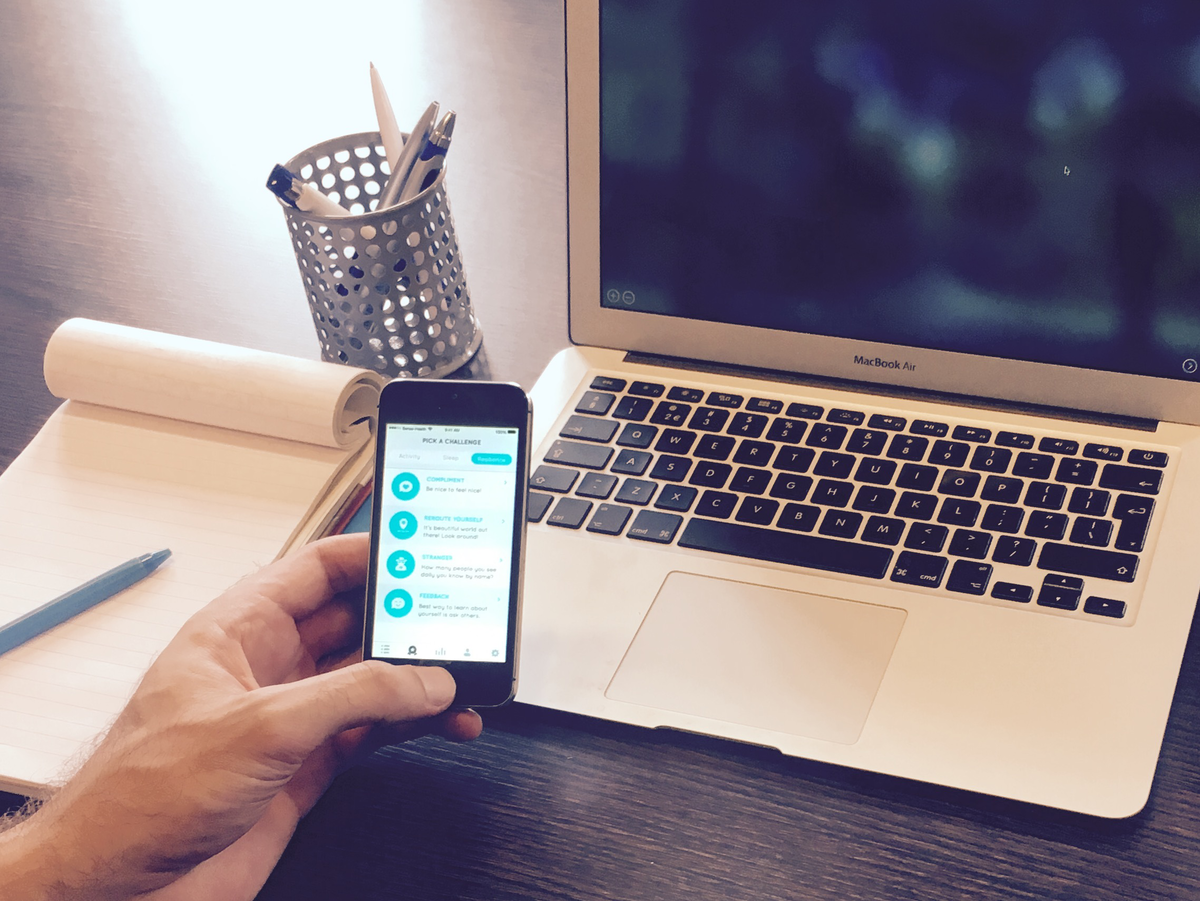Persuasive technology for health and wellbeing at work
“I’ve always been interested in the interaction between people and technology,” de Korte says. She started her career as an occupational therapist and returned to school to obtain her master’s degree in Human Movement Sciences, where she realised she preferred doing research. So, in 2000, she took a job as a researcher at the Netherlands Organisation for Applied Scientific Research, known by its Dutch acronym as TNO.
Her thesis, “Exploring Persuasive Technology in the Context of Health and Wellbeing at Work,” combines several years’ worth of research experience.
Persuasive potential
De Korte has worked on several research projects involving so-called persuasive technologies. Coined by Stanford University social scientist B.J. Fogg, the term refers to software or devices designed to change the user’s attitude or behaviour through persuasion or social influence, such as with reminders or triggers. Persuasive technologies can range from an app on your phone that reminds you to drink water, to cars that display fuel efficiency as you drive.
De Korte, who works in TNO’s Work, Health & Technology section, has focused her research on workplace issues: “Persuasive technology shows real potential to drive meaningful improvements in working life, to reduce occupational health risks or to better manage risk factors. However, can we trust it? On which theories, models or standards do they base their feedback and recommendations? Are they effective? Who is actually profiting from persuasive technology?”
In her thesis, she discusses a specially-designed computer mouse that reminds the user to change postures to reduce repetitive strain injuries, health apps that encourage physical activity, and digital stress coaches. (Image created by Sense Health)
Experiences may vary
The experiences with many of these persuasive technologies are mixed. When studying the computer mouse, for example, de Korte found that some participants really disliked haptic feedback in the mouse itself, such as a short vibration, but for others that was preferable to a computer pop-up. Many of the technologies that de Korte sees lack the ability to personalise them in such a way that keeps people using them. “It’s really important to take user experiences and the context of use into account, as early as possible in the design stages” she says.
Many of the health apps that she tested as part of a study did not make sufficient use of existing scientific research into behaviour. “They would be more effective and the relevance would increase if they did. The average app is downloaded and used for about two weeks”, according to de Korte.
Using these tools in the workplace also raises privacy concerns. If your work computer comes with software that encourages you to take breaks and move around, do you feel like big brother is watching? Would you be comfortable with your employer offering health technology to monitor your sleep patterns or heart rate? These concerns come up a lot, de Korte says. “People have to trust that their information is being used appropriately,” says de Korte, “by giving people control over what happens to their data, we can contribute to healthier working and the protection of privacy at the same time”.
Pandemic effects
She began the journey towards her Ph.D. 14 years ago when Industrial Design Engineering Professor Peter Vink first suggested to de Korte that she could turn all this research into a thesis. During that time, she had two children and it was important for her to maintain a good work-life balance. It was the outbreak of corona, ultimately, that let her finish her thesis. Her children are 10 and 12, so capable of being a bit more independent and the pandemic forced life for many to slow down in a lot of ways.
The corona pandemic, de Korte says, has triggered a lot of changes in working conditions across industries. “People have had to adapt to new ways of working, employees and employers have had to become more flexible, corona made this the only option,” she says. De Korte thinks the pandemic will give her a lot to study going forward. She has previously worked on research into workplace innovation, physical inactivity at work, and work related stress - all things people forced to work at home can now see the importance of.
She plans to keep working on many of the questions her thesis focuses on after she graduates. “I just love my work so much!”

Elsbeth de Korte

Peter Vink
- +31 (0)15 27 81438
- P.Vink@tudelft.nl
-
Room 32-B-3-160
"Sustainable productivity can be reached by adapting environments to human and organisational characteristics."



